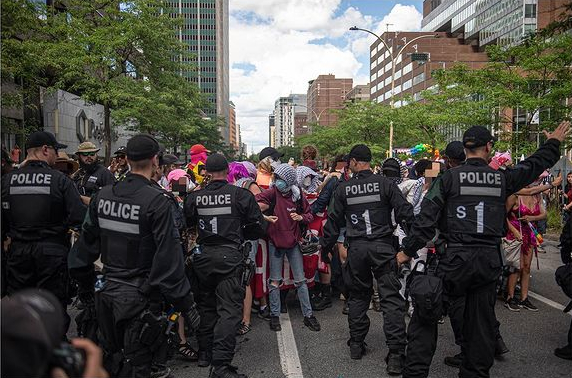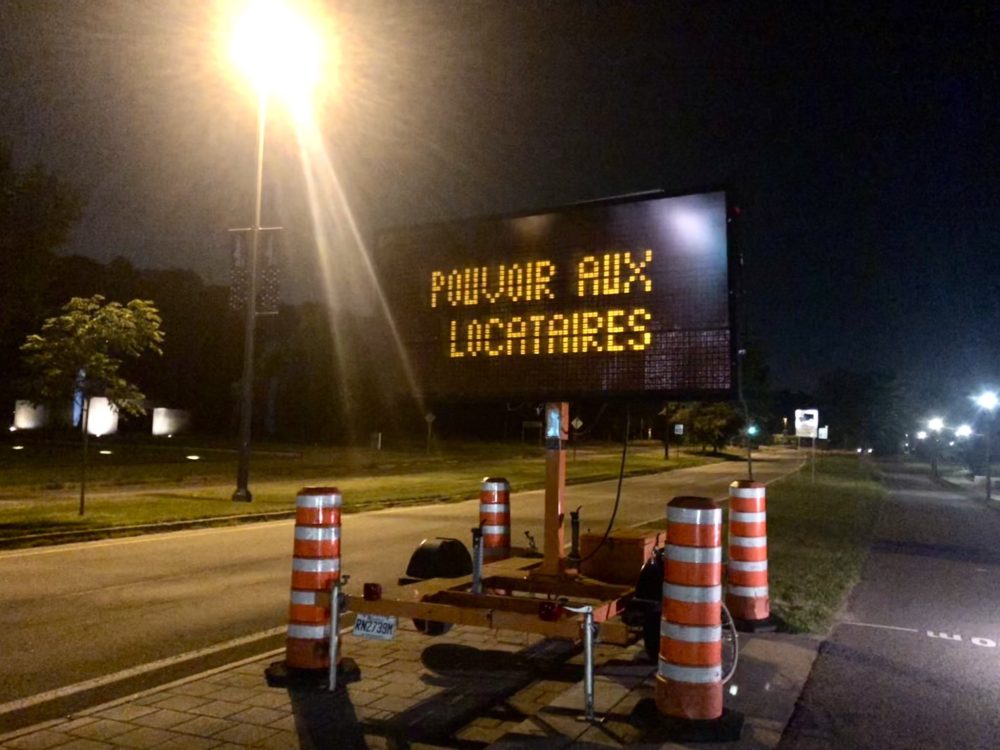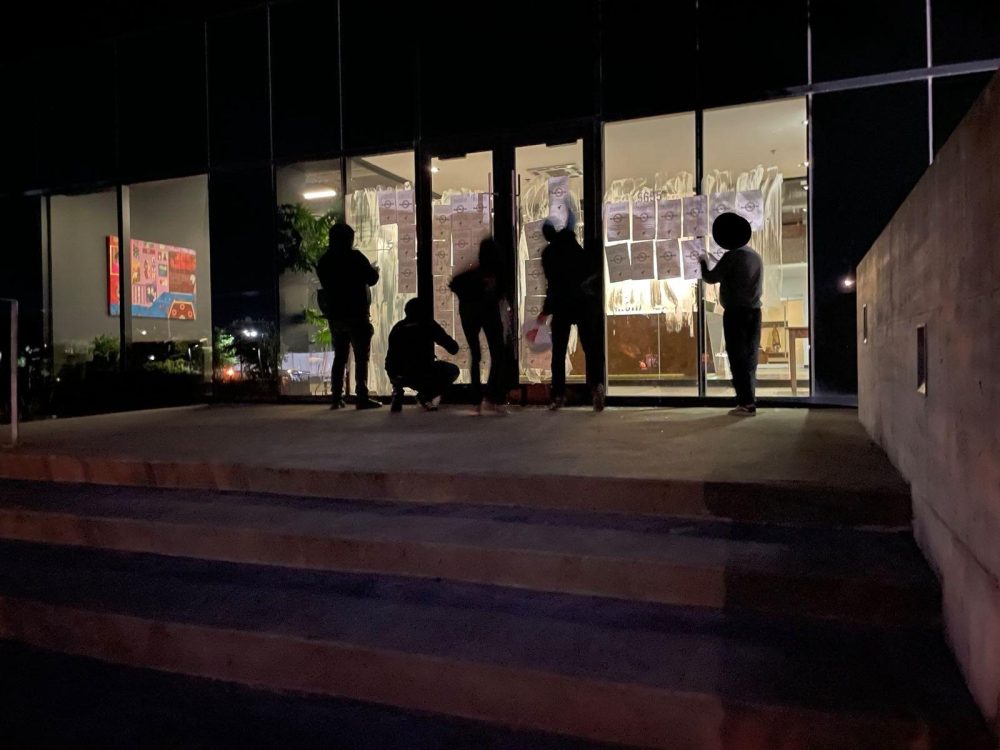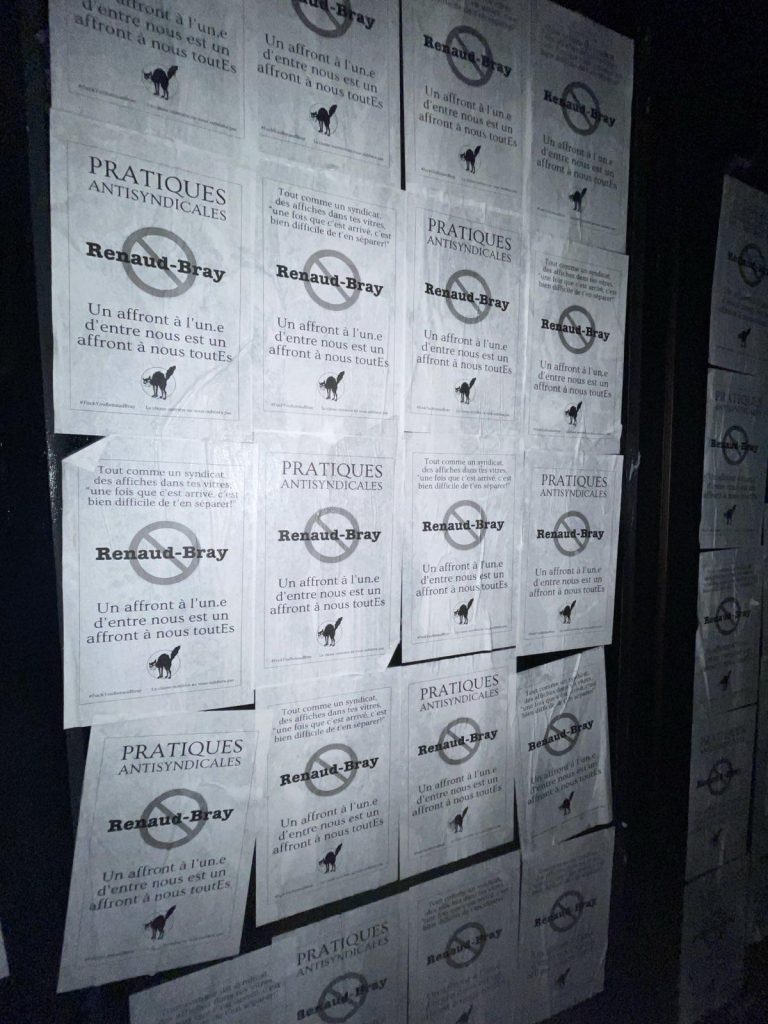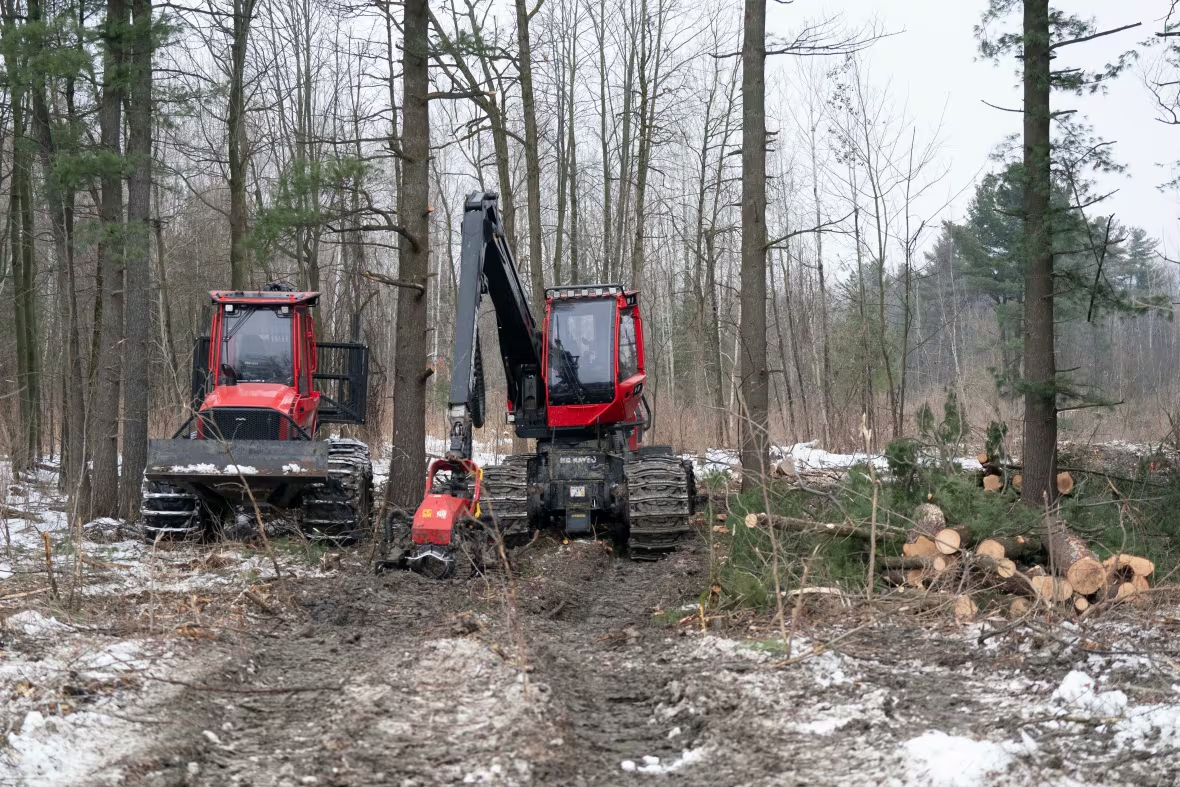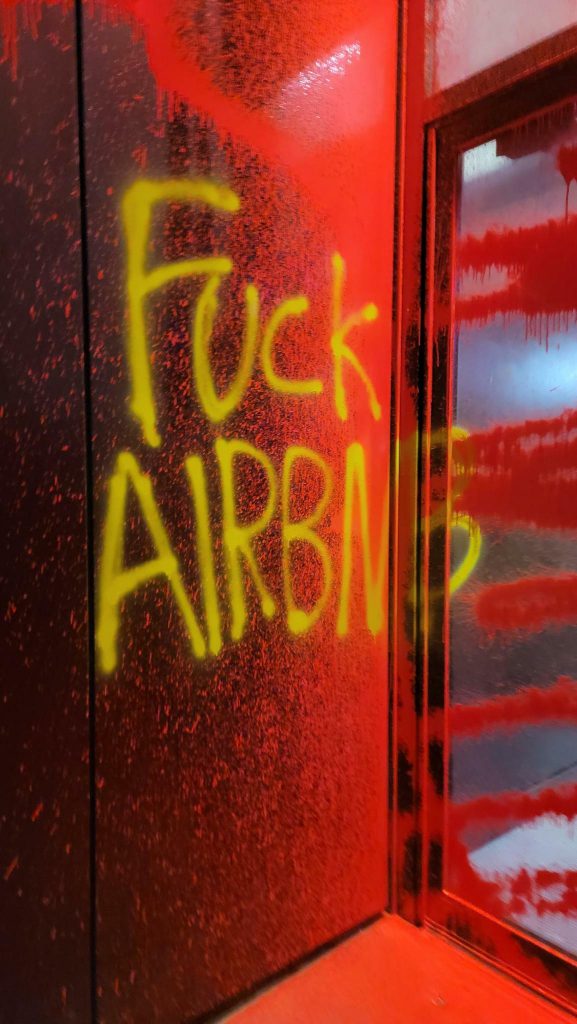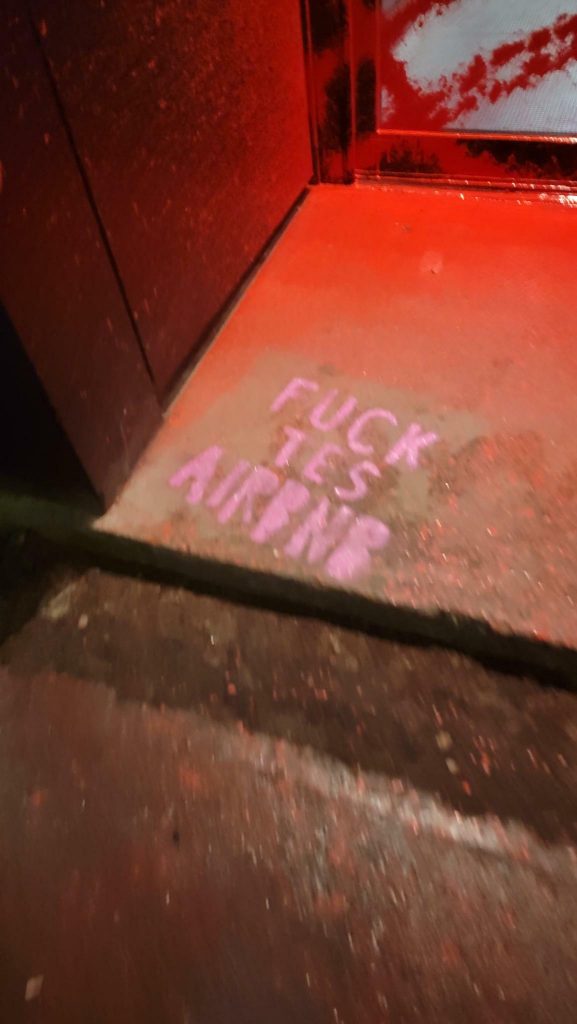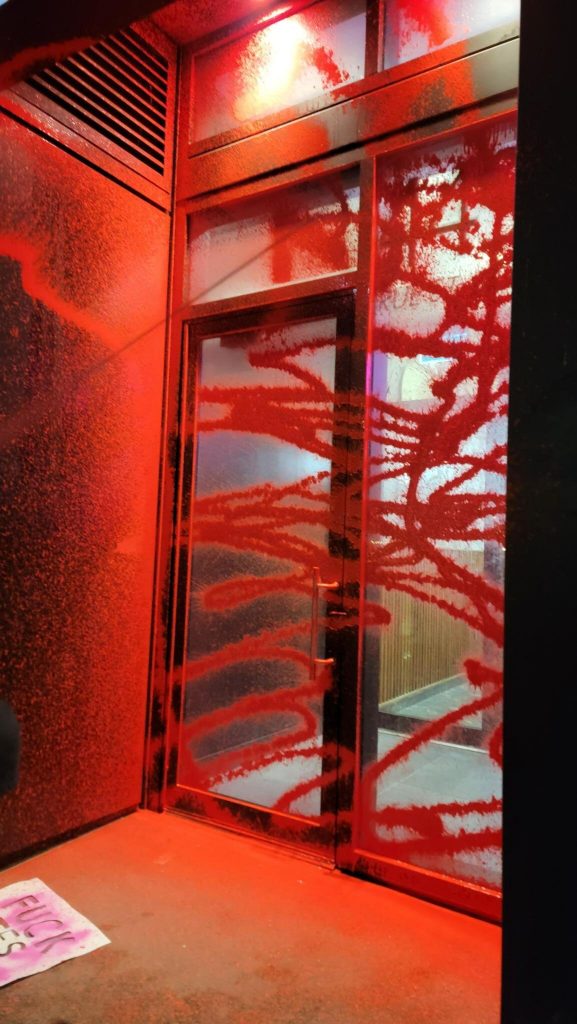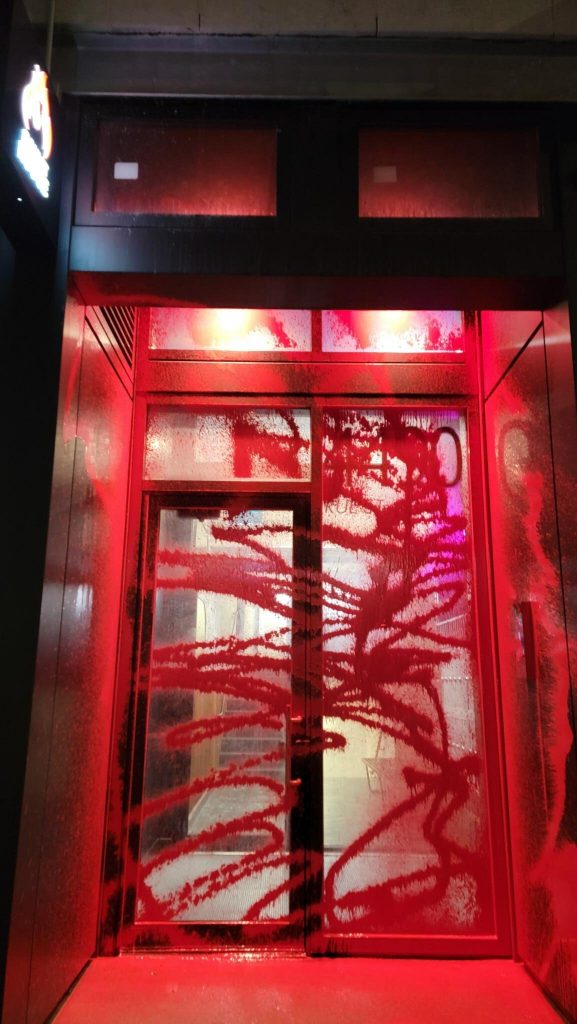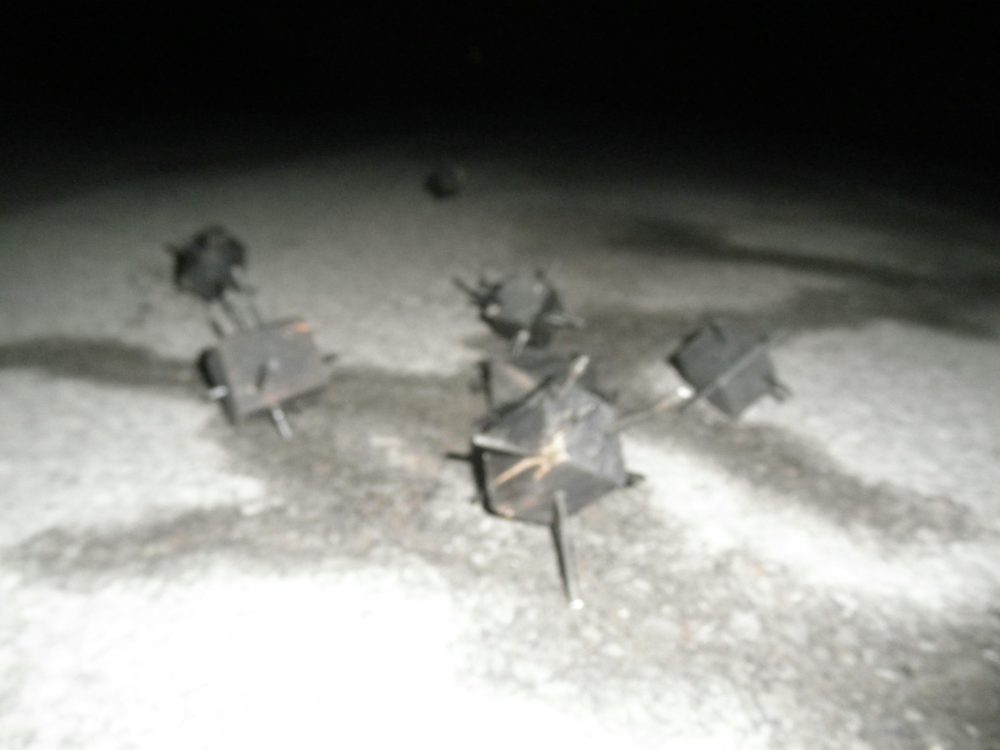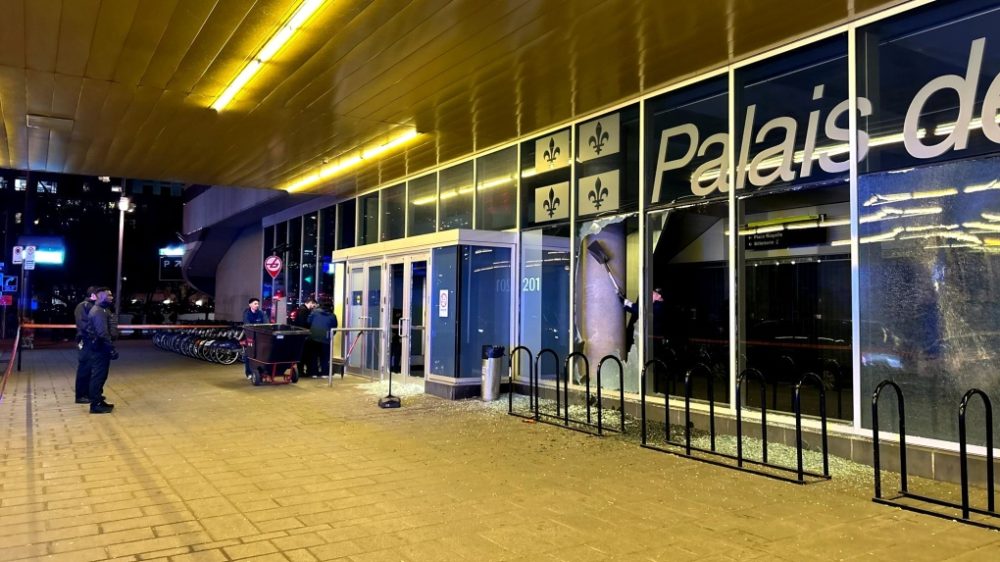
Anonymous submission to MTL Counter-info
*This release is based on the journal Block NATO, organised by CLAC and D4P, but it is independent. We will explain here the reasoning behind our actions of the evening of Friday, November 22nd, because we know why we do these things and we believe very strongly in what we do.
Let’s put things first in context : Friday marked the start of NATO’s parliamentary assembly in Montreal. NATO represents the military apparatus of the global north, it’s the biggest military alliance in history. While our governments are already making the life of the excluded and exploited a death circus, NATO pressures Canada to invest 50% more of its GDP into the military. That represents 55 billion dollars. NATO is a major decision-making body that embodies militarist and imperialist interests. It’s also an accomplice in the genocide happening in Palestine.
NATO includes the richest countries in the world, namely Canada, Germany, the United States, France, Italy and the UK, but it also conspires with non-member allies such as Japan and the Zionist entity (Israel). It protects the capitalist interests of the global north, with the United States as a semi-formal secretary. NATO organises the threat and capacity to act in devastating ways to counter any initiative of liberation of the global south. Its interests are imperialist: the States formed and governed by capital aspire to extend their power by exploiting external territories where they steal resources, destroy nature and enslave people through political, economic and/or military domination. It normalises the horror of its crimes against humanity by camouflaging them as humanitarian missions and by splitting the political costs between different countries, maintaining their democratic bases in ignorance or illusion.
The military interventions supported by NATO protect governments aligned with American interests and crush any alternative, keeping the global south under capitalist constraints. NATO’s alliance with the zionist entity is ideologically coherent, as a colonial enterprise, but Israel also provides technologies of control and weapons that NATO states use throughout the world, in their imperialist missions and on their own populations.
And oh by the way, no we don’t support Russia or prefer it to NATO, people typically think NATO is about defending against Russia, but we don’t even care, every fucking colonizer of this world has to be taken down, we hate this capitalist system and its extensions from the bottom of our heart.
The problem we’re fighting here isn’t specifically NATO’s assembly, nor the actions of the CDPQ (which requires every public employee to fund the Palestinian genocide), but they are symptoms of that problem. What the problem really is, is the dominant system which causes all these horrors : capitalism. There is no more time for calm and asking nicely. Resistance is legitimate, the State and the police can no longer have a monopoly on violence – if it’s the only language they’ll hear. We want the illusion to stop and we want to draw light, in the streets and in the media, to the horrors deployed right under our noses. We attack capital, materialised most densely downtown, to oppose symbolically and materially the most odious crimes committed for capitalism:
The windows of the Palais des Congrès, where the NATO summit is happening A car set on fire Riot police covered in paint Businesses’ windows smashed
Our acts are charged with rage born from the horrors we witness and denounce here, but also from our own grief: between climate collapse and housing crisis, inflation and shit jobs, health and education systems in ruins, xenophobia, transphobia, covid and depression, profiling and repression, the rise of fascism, etc. All of which answer to the same system. We have had enough and we are horrified, so we gather and we show our refusal. Our actions have had a symbolic and material impact: they have imposed costs financially, have disrupted and disturbed, have propagated our ideals and made visible this very legitimate and necessary struggle.
Before anything was even attacked, the police charged, pepper-sprayed and hit us. In our fight, we have seen the complicit posture of our governments : police violence is an obvious manifestation of it. To repress our actions, the police, the state’s guard dogs, have used weapons and tactics developed by the zionist entity and other NATO investments. The police have again and always defended the interests of the rich and the State: pepper-spraying, beating, breaking ribs, gassing, poisoning. It tries to choke hopes of freedom for human lives and nature, currently massacred, but we are still standing. We denounce the arrests and many injuries (cracked skull, broken arm, projectiles in the eyes, etc.), but we are still standing. The Fall was warm and winter will burn hotter, because the struggle is all we have left, because we need to do everything we can, because we love our revolutions deeply, because we love our comrades and what we know we can do together.
The media will focus on our violence, they will manipulate our messages, our messages confronting the atrocities perpetrated by Israel and NATO – responsible for millions of deaths. So it is crucial to say again that it is the brutality of the oppressive structures governing us that we fight, that the worst violence is the State’s and that that violence is a direct consequence of capitalism.
LOVE AND RAGE.
-THE BLACK BLOC



